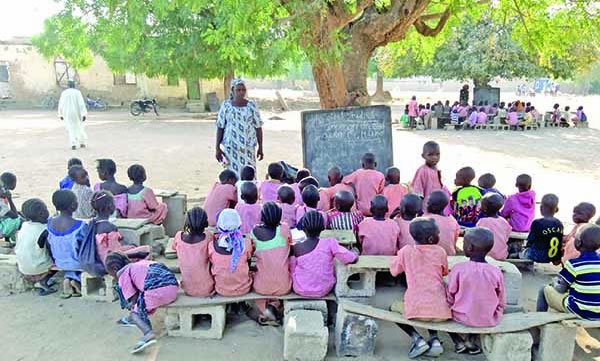by Victoria Edeme,
The United Nations Children’s Fund has noted that girls and children with disabilities are majorly affected by the education crisis in Nigeria.
This is as the group decried the education crisis bedevilling the country, noting that one-third of Nigerian children are not in school.
UNICEF made this known in its statement on Monday, to mark the International Day of Education, which is annually celebrated on January 24.
In the statement, UNICEF noted that Nigeria has the highest rate of out-of-school children as 10.5 million Nigerian children are not in the classroom.
According to UNICEF, one in five out-of-school children in the world is from Nigeria.
The agency further noted that children who are more likely to be affected by the education crisis include girls, girls, children with disabilities, children from the poorest households, in street situations, or affected by displacement or emergencies.
UNICEF Representative in Nigeria, Peter Hawkins, said, “Millions of Nigerian children have never set foot in a classroom – and this is a travesty.
“Perhaps equally tragic is the high number of children who make it into a classroom, but never make the transition from primary school to secondary school – thereby cutting off their chances for a secure future.”
UNICEF also welcomed Nigeria’s move to allocate 7.2 per cent of its N17 trillion 2022 budget to the education sector.
Reacting to that, Hawkins said, “The Nigerian Government has committed to increasing funding for education, which is a very important step – far too many Nigerian children today are not in the classroom – and for those who are, far too many are not getting a solid education that can translate into good prospects for their futures.”


